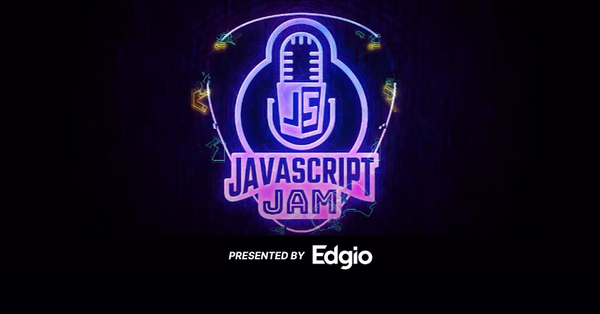JavaScript Jam Live on Wednesday
This week, we'll have another open mic to discuss the results of the Stack Overflow 2023 Developer Survey. Whether you're a beginner or expert, we encourage you to join and participate in the discussion.
Last week, we were joined by Jesse Pence and JLarky to discuss how Qwik's model of resumability relates to React Server Components and hydration. We also hit on Jetpack AI and Google's many hidden AI waitlists.
Stories of the Week
Stack Overflow Developer Survey 2023
90,000 developers responded to Stack Overflow's annual developer survey to answer questions about how they learn and level up, which tools they're using, and which ones they want. Questions covered a wide range of topics including technology, community, work, productivity, and the profile of the developers surveyed. Here's a summary of some key takeaways from the technology section:
- Programming, scripting, and markup languages: In 2023, JavaScript continues its 11-year reign as the most commonly used programming language, with Python surpassing SQL to become third most common, while Lua made a significant leap, gaining seven spots since 2022.
- Databases: PostgreSQL usurped MySQL to become the most used database among professional developers. MySQL remains the favorite among learners with MongoDB equally popular in both groups, ranking second among those learning to code.
- Cloud platforms: AWS retains its position as the most used cloud platform overall, almost doubling the usage of Azure, its closest competitor, but with AWS, Google Cloud, and Firebase seeing nearly equal usage among those learning to code. Azure shows its organizational appeal with twice the usage among professional developers compared to learners. Last year's top choice for learners, Heroku, dropped to fifth place this year.
- Web frameworks and technologies: Node.js and React.js lead as the most common web technologies used by all respondents, with Node.js slightly favored by learners over React. jQuery and Express follow in popularity, with the former more used by professionals and the latter by learners. Next.js rose to the sixth position from eleventh last year, primarily driven by its popularity among learners.
- Other frameworks and libraries: After disaggregating .NET, .NET (5+) emerged as the top framework/library again this year. Learners tend to use NumPy and Pandas more and Python-compatible libraries are favored by learners. RabbitMQ gained popularity among professionals, while Opencv and OpenGL have risen into the top 10 list with 13% and 11% usage respectively.
- Other tools: Docker ascended to the most used tool among all respondents but learners are more likely to use npm or Pip in conjunction with popular languages.
- Integrated development environment: Visual Studio Code remains the preferred IDE across all developers, increasing its use among all developers this year from 75% to 81%.
- Operating system: Windows is the most popular operating system for developers, across both personal and professional use.
- AI Search Tools: In a new category this year, ChatGPT emerged as the preferred AI search tool, used by 83% of respondents, far surpassing the second choice, Bing AI at 20%, indicating potential for growth in emerging AI search technologies as competitors strive to expand their user base.
- AI Developer Tools: Starting this year, usage of AI developer tools was surveyed with GitHub Copilot found as the dominant choice, used by 55% of respondents, significantly surpassing the second top pick, Tabnine, at 13% (though Tabnine sees slightly more usage among learners, possibly due to the costs associated with Copilot).
- AI tools in the development process: 70% of all respondents are using or are planning to use AI tools in their development process this year. Those learning to code are more likely than professional developers to be using or use AI tools (82% vs. 70%).
Fresh 1.2
Fresh 1.0, a modern, Deno-first, edge-native full stack web framework introduced nearly a year ago, has seen significant growth and popularity, becoming one of the top starred frontend projects on GitHub. However, the project faced maintenance challenges with over 60 open and unreviewed pull requests in the Fresh repository.
To overcome this issue, Marvin Hagemeister, a maintainer of Preact and a prolific contributor to the JavaScript ecosystem, has joined the Deno company and will now lead the Fresh project full-time. This change promises a bright future for Fresh with expected improvements in usability, features, performance, and project maintenance.
The recent Fresh 1.2 release introduced several highlight features including:
- Passing signals,
Uint8Arrays, and circular data in island props, which allows for a broader range of data types to be serialized and shared between islands. - Passing JSX to islands and nesting islands within each other, thus enabling more dynamic integration of components in applications.
- Support for
npm:specifiers in importing packages during server rendering and for islands, though this feature isn't yet supported by Deno Deploy. - Support for custom
HEADhandlers - Status and header override for
HandlerContext.render - Allowance for subdirectories in the
./islandsfolder - Async plugin rendering
- Simplified testing of Fresh projects through the export of a new
createHandlerfunction.
Quick Links
- Sterling Davis - Unify and modernize your web architecture with Netlify Connect
- TkDodo - Thinking in React Query
- Vishwas Gopinath - A Visual Guide to the new App Router in Next.js 13
- Netlify TechBlog - Migrating Netflix to GraphQL Safely
- Maggie Appleton - Language Model Sketchbook, or Why I Hate Chatbots
- Ryan Carniato - Revolutionary Signals
- Jeremy Wagner - How large DOM sizes affect interactivity, and what you can do about it
- Mojtaba Seyedi - Qwik City
Podcasts of the Week
- PodRocket - The Epic Stack with Kent C. Dodds
- PodRocket - Svelte compiler, linters, and React Server Components
- PodRocket - Should you use React in 2023? with Tru Narla
- Web Rush - Rise and Fall of JavaScript Libraries with Chris Ferdinandi
- Whiskey Web and Whatnot - Next.js, Vercel, and Subscription Models
- SyntaxFM - AsyncLocalStorage + AsyncContext API
One More Thing
At Remix Conf we had the chance to sit down with Nick Taylor, Staff Software Engineer on the Frameworks Team at Netlify, to discuss maintaining open source frameworks, the value of streaming about technical topics, and what is and isn't "developer relations."
JavaScript Jam on the Web
Find us online at the following links:

